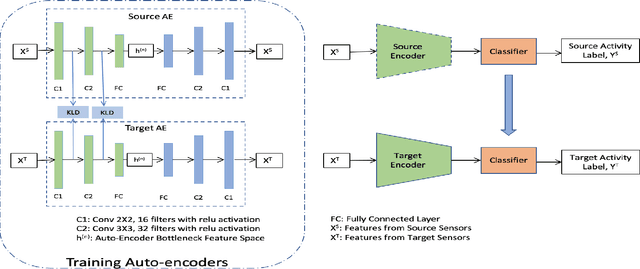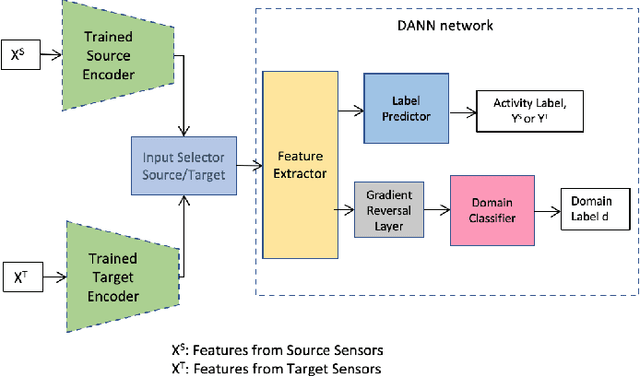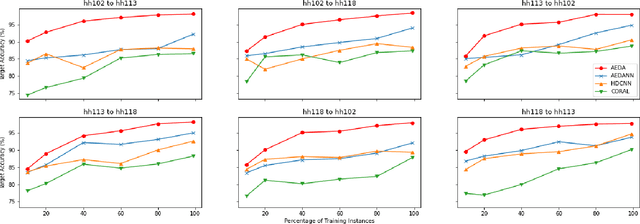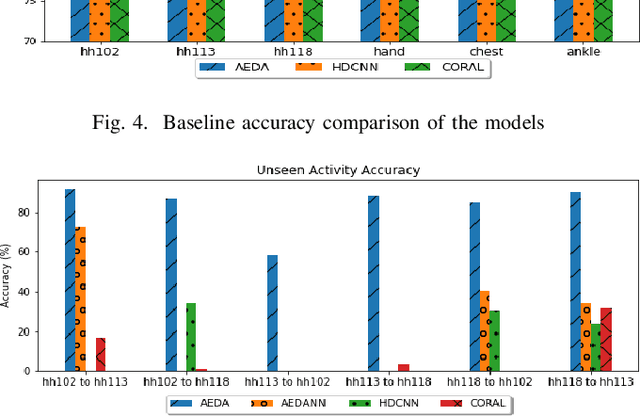Enabling Heterogeneous Domain Adaptation in Multi-inhabitants Smart Home Activity Learning
Paper and Code
Oct 18, 2022



Domain adaptation for sensor-based activity learning is of utmost importance in remote health monitoring research. However, many domain adaptation algorithms suffer with failure to operate adaptation in presence of target domain heterogeneity (which is always present in reality) and presence of multiple inhabitants dramatically hinders their generalizability producing unsatisfactory results for semi-supervised and unseen activity learning tasks. We propose \emph{AEDA}, a novel deep auto-encoder-based model to enable semi-supervised domain adaptation in the existence of target domain heterogeneity and how to incorporate it to empower heterogeneity to any homogeneous deep domain adaptation architecture for cross-domain activity learning. Experimental evaluation on 18 different heterogeneous and multi-inhabitants use-cases of 8 different domains created from 2 publicly available human activity datasets (wearable and ambient smart homes) shows that \emph{AEDA} outperforms (max. 12.8\% and 8.9\% improvements for ambient smart home and wearables) over existing domain adaptation techniques for both seen and unseen activity learning in a heterogeneous setting.
 Add to Chrome
Add to Chrome Add to Firefox
Add to Firefox Add to Edge
Add to Edge